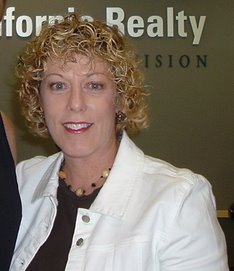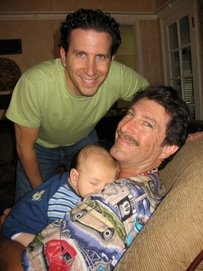Recently
I read a book with the title Change
Anything that validated something I’ve been teaching for about 25 years.
They cite study after study working with thousands of people from their own
research plus the studies from other universities, books and institutions. In
my book I just had anecdotal stories based on my coaching clients.
The bottom line is that
to change any behavior, from losing weight, improving job performance, quitting
smoking to improving a marriage or creating wealth, it is NOT a do-it-yourself
project and it does NOT involve will power. It requires a structure that
involves both the support of other people as well as changes in your
environment. In
the same way it’s easier to carry a casket with six people, there are six
components needed to bury any bad habit and replace it with the behavior that
you want.
Let’s say you want to get
out of debt, save money, invest money and create financial independence, where
you can choose to work if you want, or choose not to work. Here’s an example of
what you face when you want to change your behavior:
First you get offers in
the mail for another credit card. Then you see on the TV and ad for some gadget
that will make your life better. You turn off the TV and on the radio you hear
an ad for the same, or a different gadget, book or program that will make your
life better. So you turn off the radio and check your emails and see the banner
ads for the gadgets that will make your life better. Or you get emails because
of some website that you looked at yesterday and they want you to buy the
gadget from them. Then PayPal tells you about their new program where you don’t
have to pay right away. You’ve had enough and get in the car to get some milk,
and on the way to the store you stop at a traffic signal. Jus ahead you see a
billboard advertising that gadget that will make your life better. You turn
your head away from the billboard and see the same ad for the same gadget on
the bus bench next to you.
Do you realize how you
are bombarded with advertisements that scream at you from every direction to
buy this and buy that, and if you don’t your life won’t amount to anything? If
you buy this beer you’ll get beautiful models to fawn over you. If you don’t
whiten your teeth no man or woman will speak to you. It’s absurd. But I guess
it works, or companies won’t spend the money on all that advertising.
So you think that you can
solve this with your will power? Give me a break! I realized many years ago
that I was not going to be able to get myself out of debt and create financial
independence unless I got the support of some people who had achieved what I
wanted to achieve. And that worked for me, and then it worked for my coaching
clients.
The Change Anything
book identified six areas to use from people to your environment to create the
changes you want in your life. I don’t care if you want to change your life or
transform your life, using all six of these areas is where the power comes
from. Sure you can use one or two of the areas, but that’s like lifting a
coffin with one or two people instead of six people.
So, what are the six
areas? There are three big areas, personal, social and structural, with motivation
and ability in each of the three big areas.
11.
The
obvious first area is you need to have the Personal
Motivation to change. You want to tap into what you want, what’s important
to you, and your desires. Here it’s important to discover you own value system
and have it be conscious. You may value family, or learning or integrity, but
you have to write it down and make it real.
22.
You
need to have the Personal Ability to
accomplish your goal. To get out of debt you need to know how much debt you
have, how to create a personal or business budget or spending plan. You need to
have the knowledge of how to reach your goal, and you may have to get educated
on how to do this.
33.
Next
you will need to determine if you have the Social
Motivation. Do the people around you support good or bad habits? Are the
people you socialize with spenders? Are they in debt? Would they feel more
comfortable if you achieved financial freedom and no longer had debts? Or do
your friends all feel comfortable that you’re all in the same boat together
44.
You
have to have the willingness to establish the Social Ability that will support and enable you to follow a new
path. You have to either convert the people around you who may be accomplices
to your old behavior into friends that will support your new behavior, or you
have to find new friends. This is a tough one. You may have to find a mentor,
new friends or hire a coach.
55.
Structural Motivation involves things. Do
you have the same connection to your money when you use a credit card or real
hard cash? Can you see yourself paying for a $300 meal with a credit card or a
stack of $20 bills, or three $100 bills? What would give you more of the feeling
that you are really paying $300 for the meal? If you want to have the feeling
you are really spending money use cash, not a credit card, debit card or check.
66. Structural Ability deals with changing
your environment. Either adding visual cues or removing visual cues can help
you focus on what you want to accomplish. An example might be to remove the
poster of a cat clinging to a branch in eminent danger of falling. Instead, put
up a poster showing a pristine white sandy beach in Bali; with palm trees in
the background; you and a mate sitting on lounge chairs, and have this
represent where you could live if you didn’t have to work for a living.
For a free copy of my best selling,
award winning book, Wealth On Any Income, log onto www.WealthOnAnyIncome.com ,
enter your name and email address and press the button that says “Click here
for your free book.”


